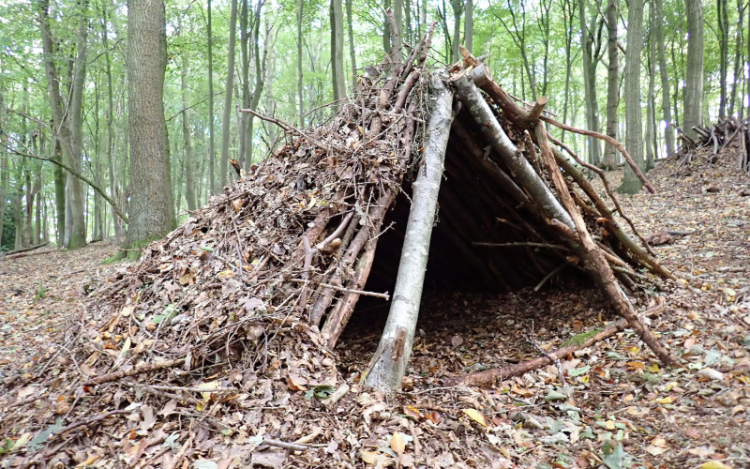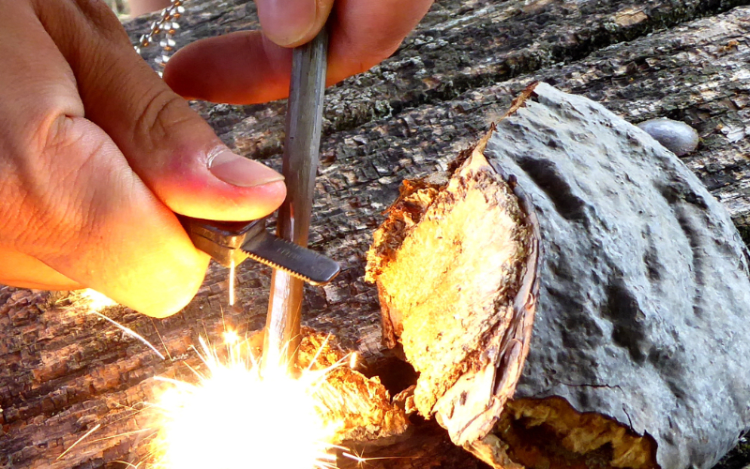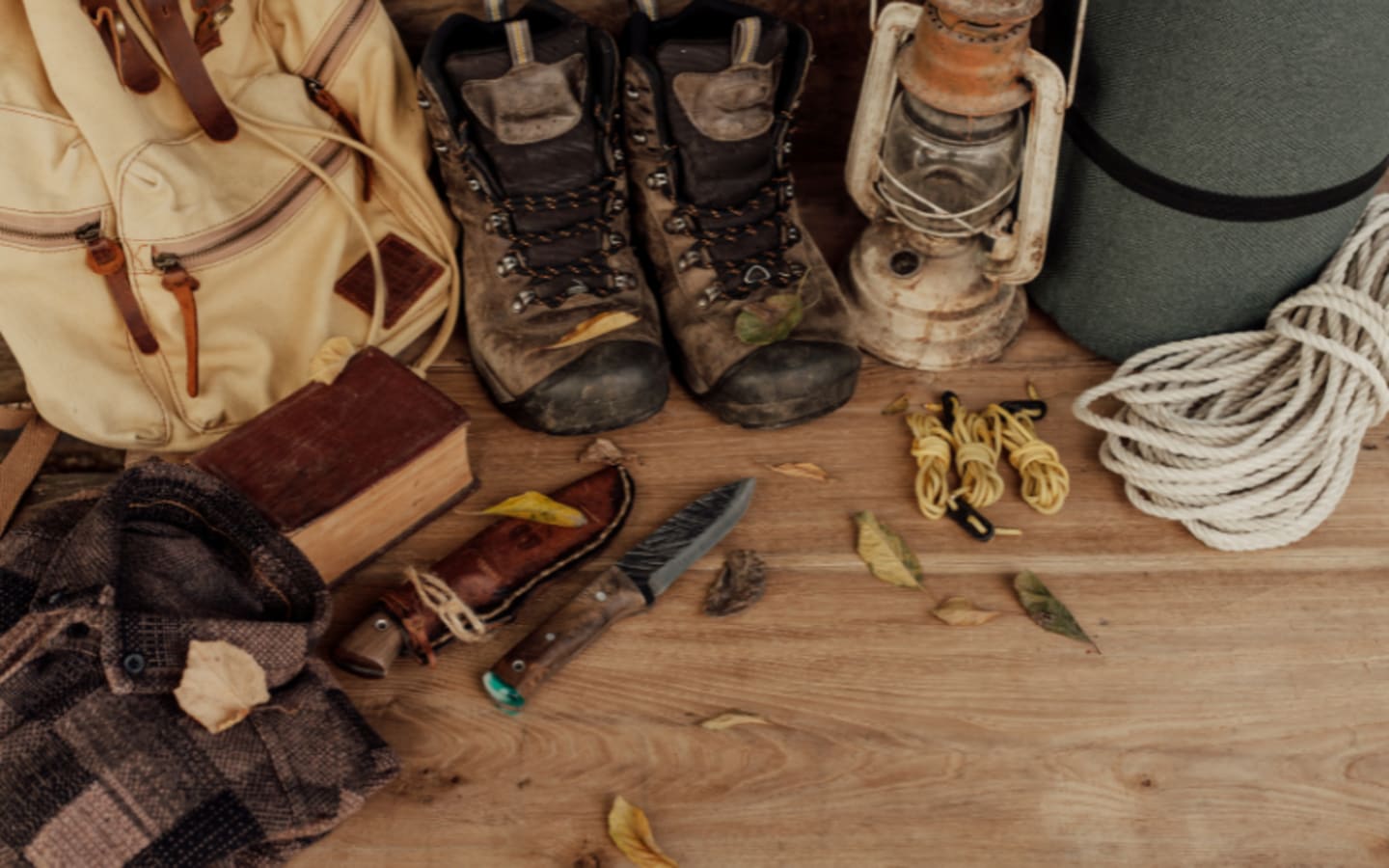Bushcraft might be your calling if you've ever dreamed of living in the woods, away from the bustle of contemporary life. It is more than just a pastime; it is a collection of useful, tried-and-true abilities that can transform any outdoor experience into a story about independence. Learning these bushcraft skills will make you wish you had started sooner, whether you're a weekend camper or someone who prepares for the unexpected. Let's explore the fundamentals that will help you become an expert in the outdoors.
1. Building a Shelter That Stands Up to Nature

Image credit: Gentleman's Pursuits/Canva
There is nothing more satisfying than creating your own haven with only the resources found in the forest. When the weather becomes bad, knowing how to build a strong shelter will keep you safe, warm, and dry. Start easy: find a level area that is protected from the wind. After using fallen branches as a structure, cover with bark, moss, or leaves to provide insulation. The trick? To make rainwater glide off your roof, angle it. Start with a tarp at home to practice this, and then on to natural materials. Both search engines and your future self will appreciate useful advice like this while you're cooped up in a deluge.
2. Mastering Fire Without a Lighter

Image credit: Gentleman's Pursuits/Canva
In the woods, fire is your lifeline; it may be used for cooking, warmth, and even a lift in spirits. Instead than using matches, learn how to light a fire using a bow drill or a flint and steel. The know-how is just as important as the instruments. Keep your kindling dry and tiny, and gather tinder, such as birch bark or dried grass. To bring the flame to life, gently blow. You'll never view a campfire the same way again after you master this technique, which requires patience. Furthermore, people are curious about "how to start a fire without a lighter," which is why it's a popular keyword!
3. Finding and Purifying Water
You may go weeks without eating, but you can only go days without drinking. It's crucial to identify a clean source in the wild, but it's not always clear. Observe where animals drink and look for streams that flow over ponds that are stagnant. No source in the area? Nature's filter is in action when you dig a tiny hole a few feet from the water's edge and allow it to soak in. However, purification is essential. If you have fire, boiling works. Alternatively, you can make a simple filter out of charcoal, sand, and rocks. Clicks are attracted to keywords like "purify water in the wild," and this ability attracts tranquility.
4. Foraging for Wild Edibles
Have you ever wondered what is safe to eat while in the woods? Foraging is a means to establish a connection with the land and is not just for survivalists. Start with simple wins like wild berries (if you're positive they're safe), cattail roots (starchy and filling), or dandelions (every part edible). Always check again with a field guide because mistakes can be expensive. This ability reduces your dependency on packaged meals and increases your self-confidence. You'll wish you knew this before your last trip got too lengthy, and readers looking for "edible plants for beginners" will devour it.
5. Knot-Tying Like a Pro

Image credit: Gentleman's Pursuits/Canva
Your equipment, your shelter, or even your life can be saved by a well-made knot. For hanging a bear bag or performing rescues, the bowline makes a safe loop that is simple to untie. Tent line tension is magically adjusted by the taut-line hitch. Use paracord or rope to practice them until your fingers move automatically. It's low-tech, high-impact content, just what outdoor enthusiasts and search engines want. Once you've mastered this, you'll question why you ever had trouble with a knotted mess.
6. Navigating Without a GPS

Image credit: Gentleman's Pursuits/Canva
The sun and stars never die, but phones do. When technology fails, basic navigation keeps you on course. Use the sun's arc to determine north by inserting a rod into the ground, marking the tip of its shadow, waiting fifteen minutes, then marking again; the line connecting them points east-west. Find the Big Dipper at night and follow its rim to the North Star. Combine this with the ability to read natural indicators, such as moss, which prefers shade over north. "Survival navigation tips" is a goldmine phrase, and when you're lost, this information is invaluable.
Why Start Now?
Anyone who enjoys the outdoors or wishes to be prepared for anything can benefit from knowing these bushcraft skills; they are not only for doomsday preppers. They strengthen your problem-solving skills, increase your resilience, and strengthen your connection to the natural world. They're also entertaining to learn. When you're hungry, cold, or lost and far from assistance, the regret of not knowing them hits hard. So go to your backyard, get some cordage, and begin practicing. Your next journey will appreciate it.
Are you prepared to advance in level? For additional tips, look for nearby bushcraft classes or visit internet discussion boards. Don't wait until it's too late to respond to the call—the wild is waiting.





